Copyright © University of Cambridge. All rights reserved.
'I Have a Box' printed from https://nrich.maths.org/
Show menu
Using everyday language to describe and compare quantity, size, weight, capacity and position
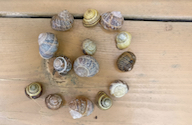
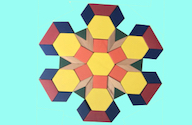
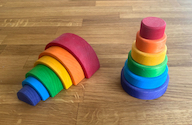

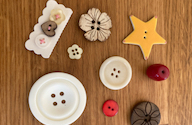
Children often enjoy guessing, counting and imagining.
Adults could provide a variety of sealed boxes, provoking children to discuss what might be inside.
Adults could provide a variety of sealed boxes, provoking children to discuss what might be inside.
The Activity
Show the children a sealed box containing a range of objects which differ in size, weight and ability to rattle! Ask them what might be inside the box and following this up with questions to encourage them to think and apply their knowledge and past experiences. Try to build up the suspense so as to hook the children in!
Show the children a sealed box containing a range of objects which differ in size, weight and ability to rattle! Ask them what might be inside the box and following this up with questions to encourage them to think and apply their knowledge and past experiences. Try to build up the suspense so as to hook the children in!
Encouraging mathematical thinking and reasoning:
Describing
Tell me (a bit more about) what you think is inside the box.
How big is it/are they?
How many of them are there, do you think?
Tell me (a bit more about) what you think is inside the box.
How big is it/are they?
How many of them are there, do you think?
Reasoning
Why do you think it is/they are inside?
Why do you think it is/they are that size?
Why do you think there are that many?
Why do you think it is/they are inside?
Why do you think it is/they are that size?
Why do you think there are that many?
Opening Out
Can you find another box that could just hold a ...?
How many ... could you fit inside?
Here are some other different boxes. How many ... could you fit into each of them?
Can you find another box that could just hold a ...?
How many ... could you fit inside?
Here are some other different boxes. How many ... could you fit into each of them?
Recording
Would you like to make a drawing of what's inside this box?
Would you like to make a drawing of what's inside this box?
The Mathematical Journey
Measures:
- developing language to compare and contrast e.g. bigger, taller, longer, shorter, heavier, lighter, wider, narrower...
- noticing that you get more smaller objects in a box, bigger things take up more room and there are fewer of them
Properties of objects:
- choosing particular boxes for particular objects having analysed the properties of the objects involved and how many there will be
- using everyday language such as curved, pointy, straight, wiggly to describe objects then progressing to using mathematical language such as circle, square, rectangle, triangle, oblong... where appropriate
Counting and cardinality:
- counting and cardinality - progressing from knowing some number words to saying one number for each object, then knowing the number of the whole group
Development and Variation 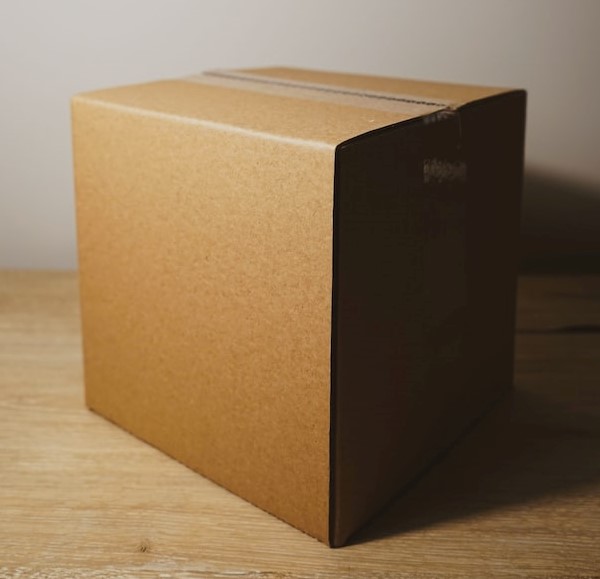
The activity Presents in the NRICH EYFS collection could be a follow-up to this one. It focuses on ordering wrapped presents according to their weight.
Once the contents of the box have been revealed, you could challenge children to put specific numbers of objects inside it. Listen out for reasoning that reflects the fact that smaller objects take up less space, therefore more of them can be fitted into the box compared with larger objects.
You could add context to this activity by linking it to a recently-read story or role-play theme. The boxes could become, for example, suitcases or trunks.

The activity Presents in the NRICH EYFS collection could be a follow-up to this one. It focuses on ordering wrapped presents according to their weight.
Once the contents of the box have been revealed, you could challenge children to put specific numbers of objects inside it. Listen out for reasoning that reflects the fact that smaller objects take up less space, therefore more of them can be fitted into the box compared with larger objects.
You could add context to this activity by linking it to a recently-read story or role-play theme. The boxes could become, for example, suitcases or trunks.
Resources
In addition to the box/boxes, you will need a selection of objects which differ in
Try to select items that the children are used to seeing in the setting, or have experience of from elsewhere.
In addition to the box/boxes, you will need a selection of objects which differ in
- size
- weight
- rattling ability
Try to select items that the children are used to seeing in the setting, or have experience of from elsewhere.
Download a PDF of this resource.
With thanks to Kirsty Lombari at Ludwick Nursery School who was the inspiration for this activity.
